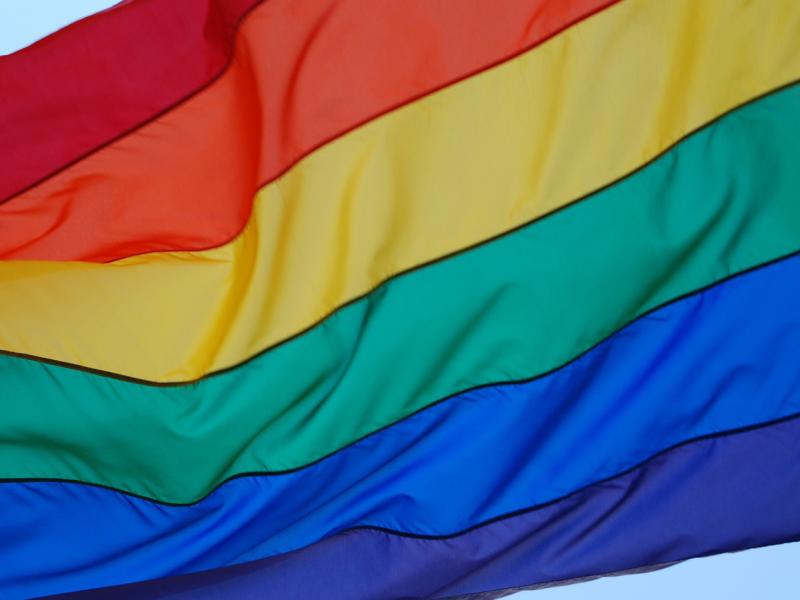Attitudes to sexual orientation and gender identity have changed for the better all over the world in the last two decades, towards openness and acceptance. For the most part, these attitude changes have been mirrored by improving rights for LGBT+ people and their families in the law, in workplace entitlements, and in equal opportunities in the wider community.
Where LGBT+ people have won long-lasting and meaningful advances, they have been part of genuine movements for change. They have fought for change alongside others in the global working class who seek to build a fairer, more equal world, from a place of shared values. From Lesbians and Gays Support the Miners in the United Kingdom in the 1980s to the Maritime Union of Australia’s staunch support for marriage equality this decade just gone, solidarity and dignity for all people are the shared values that underpin our shared struggle for equality.

However, the last 20 years we have also seen the emergence of ‘rainbow capitalism’ – a process where some companies add a progressive gloss to their brands while simultaneously continuing, or even deepening, their exploitative practices. This process pushes a wedge between LGBT+ consumers and our sisters and brothers suffering exploitation in the wider global working class – often at the hands of the brands we are now told support ‘equality’. Equality for whom?, you might ask.
Recent examples of ‘rainbow capitalist’ hypocrisy include Deliveroo providing its riders with Pride-themed bags while continuing to pay them well below a living wage; Delta Air Lines pushing its pro-LGBT+ credentials while resisting multiple organising efforts among cabin and ground crew (a significant proportion of whom are LGBT+ themselves); and ANZ Bank, which redecorated its ATM cash machines at the very same time the Australasian bank was financing predatory land evictions in Cambodia.

So if not rainbow capitalism, then what is the way we achieve equality for LGBT+ workers and their families? Solidarity.
The labour movement has a proud history of opposing discrimination and violence against LGBT+ people, with heterosexual and cisgender workers standing alongside their LGBT+ colleagues in the fight for equality. From pushing for pension reform, to supporting the decriminalising homosexuality, to offering members education and treatment for HIV/AIDS, unions have been an essential part of the LGBT+ story in many countries.
Despite our proud record in many places, we must acknowledge that unions have not always been on the right side of history when it comes to LGBT+ equality. Still today, some LGBT+ workers are forced to contend as much with their own colleagues and representatives as with their employers and governments. However, the labour movement – the vehicle for the global working class and our vision for a fairer, more equal future – is taking strides into the future, and the ITF is committed to leading the way.
At the last ITF Congress in 2018, our global union family passed a resolution brought by Dutch union FNV calling for close cooperation with other global unions to promote LGBT+ rights. We have subsequently helped launch the global unions’ LGBTI Workers initiative, which brings together resources and best practice from unions around the world.
Fast forward to Pride 2021 and the ITF has launched our first global working group on LGBT+ issues. Bringing together representatives from the ITF’s industrial sections, regional offices and women and youth departments, the group exists to cooperate with LGBT+ and allied transport workers worldwide in the struggle for equality.

Alongside the challenges facing all transport workers , particular obstacles stand in the path of LGBT+ transport workers. For example, in a single shift, a gay cabin crew member can fly from a country characterised by full legal equality to one in which homosexuality carries the death penalty. Seafarers on board a ship for months can find it difficult to access HIV/AIDS treatments, with life-saving medicines still banned in some jurisdictions. Trans truck drivers with no access to secure and hygienic toilets have no safe space to use the bathroom and avoid the potential for gender-based violence. It is noteworthy that during this year’s Pride month, ILO Convention 190 on Violence and Harassment came into effect, working towards giving LGBT+ workers more protections from harm in the workplace.
The problems listed above will not be solved by companies draping their stores in rainbow flags once a year, their CEO posting a selfie, or their corporate Facebook page getting a 30-day facelift. These problems, like all those faced by the global working class, will only be overcome by LGBT+ workers and their allies standing in unity to demand the dignity of equality – in the workplace, at the bargaining table, on the streets, and in the parliaments and congresses of the world where the real decisions are made.
For our part, the ITF is committed to campaigning for LGBT+ equality from the lunchroom to the boardroom. In line with our focus on workers’ capital, we will also be engaging with investors to monitor companies’ performance when it comes to upholding the rights of LGBT+ workers. Just as LGBT+ workers are standing up to shallow ‘rainbow capitalism’ as consumers, workers in our unions can use the power of workers’ deferred wages to make sure companies live up to their pronouncements about equality in practice.
Because the dignity of equality must be felt by all, or it is felt by none. As the Covid catch-cry of our times goes: no one is safe until we are all safe. And so, it is true: no one is equal until we are all equal.
- Paddy Crumlin, ITF President
- Stephen Cotton, ITF General Secretary





